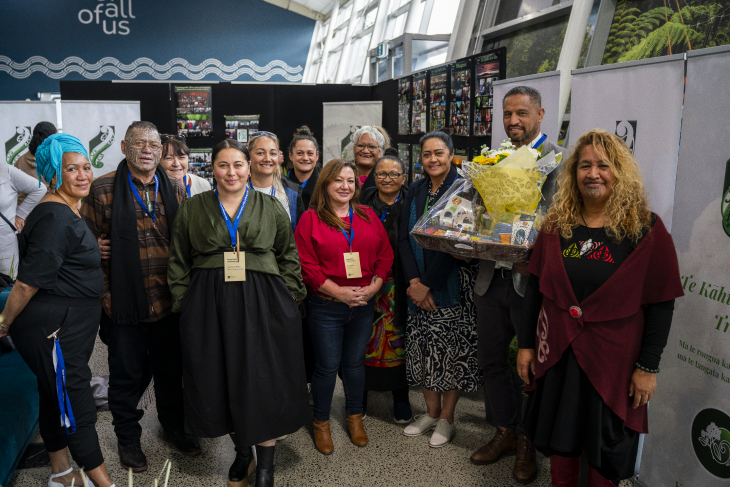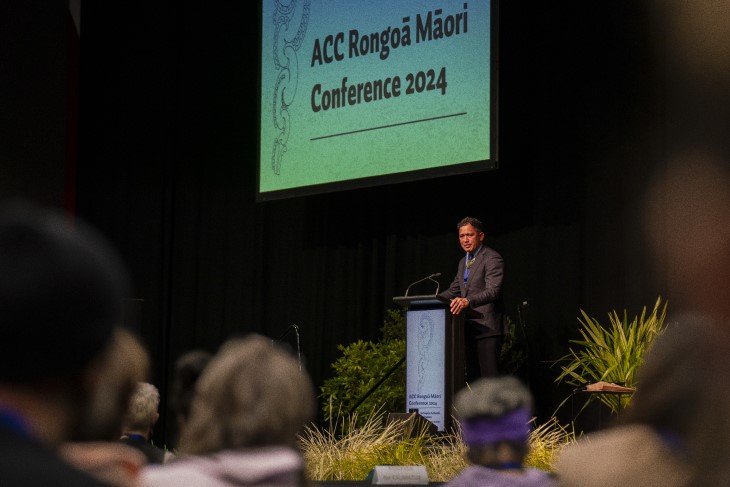Rongoā Māori: ‘ACC has done a lot to normalise rongoā’

After attending the recent ACC Rongoā Māori Conference, practitioner Jolie Davis says ACC has played a big part in increasing the awareness of traditional Māori healing in our communities.
Rongoā expert Jolie Davis (Ngāti Kuri, Te Rarawa) says it was a special experience being part of the inaugural ACC Rongoā Māori Conference, held recently in Rotorua.
The two-day conference brought together more than 400 rongoā Māori practitioners and health providers within te ao rongoā (the rongoā community) to whakawhanaunga (build relationships) and grow understanding of traditional Māori healing and its place in Aotearoa’s health sector.
“It was really exciting to bring everyone in the rongoā community and health providers together, which we’d never done before,” Jolie says.
“It was a good opportunity to share, learn and see how we can work together to meet all the needs of our communities.
“We hope this conference will help grow the understanding and awareness of the benefits of rongoā Māori and traditional healing.”

A resurgence of traditional Māori healing
Jolie is a rongoā Māori practitioner from the Far North who is now based in Wellington and manages Manawa Ora.
She says there’s been a resurgence of traditional Māori healing.
“Rongoā Māori seeks to restore balance and find the cause of disease and unwellness,” she explains.
“Currently in Aotearoa, rongoā Māori is experiencing a massive revitalisation of our traditional practices.
“We’re really happy about that as more and more people want to know more about rongoā Māori and how to access it.”
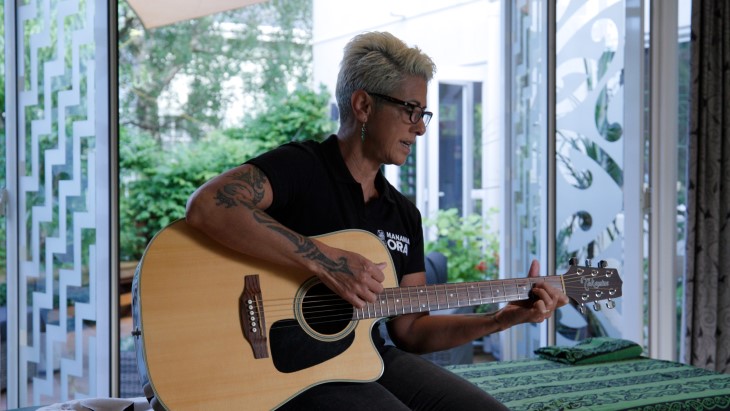
Providing rongoā as a rehabilitation option
Since June 2020, ACC has been offering rongoā Māori as a rehabilitation option for people in their recovery and we’ve now delivered rongoā in more than 10,000 claims.
There are now 200 practitioners registered with ACC, from the Far North down to Stewart Island.
Jolie says the support of ACC has been a big part of the resurgence.
“ACC has done a lot of work to normalise rongoā Māori in our communities – people coming through our doors have probably quadrupled in the past three years,” she says.
Over the past four years, ACC has funded more than 77,000 rongoā Māori sessions and claims have doubled for people requesting access to rongoā Māori.
“So there is significant demand out there in our communities and ACC has been instrumental in creating access for our whānau,” Jolie says.
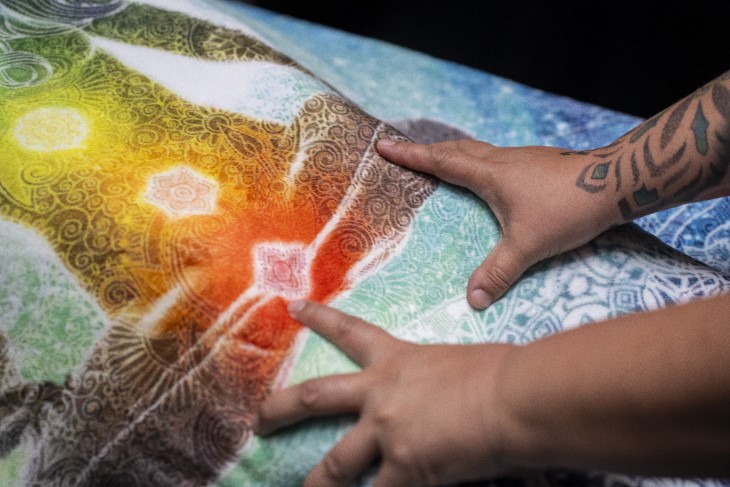
A tradition of using rongoā for wellbeing
Jolie is a member of ACC’s Rongoā Māori Advisory Panel. Her passion for rongoā came from growing up in a community where it was part of her local environment.
“In my community in Ahipara, we had access to rongoā Māori – not just for illness or injury but as a part of maintaining our wellbeing,” she says.
“I grew up with the understanding that it was normal in terms of hauora (health) and healthcare.
“It wasn’t until I moved away from my tūrangawaewae (place of belonging) that I realised it wasn’t normal to others.”
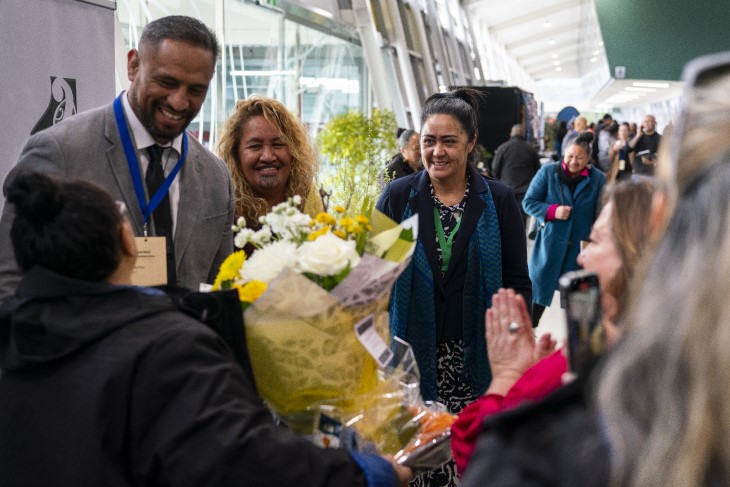
Eldon Paea at the ACC Rongoā Māori Conference.
Delivering equity for all New Zealanders
Our research shows Māori are more likely to experience a serious injury than non-Māori but are less likely to make an ACC claim.
Rongoā Māori claim volumes have doubled in the 12 months to March 2024, with 5,054 additional claims using rongoā.
“Offering rongoā as a rehabilitation service is part of our continuing efforts to deliver equity for Māori,” says Eldon Paea, Head of Māori Health Partnerships for ACC.
“It presents injured Māori, and all New Zealanders, with more choice in their recovery options, and is a positive step towards delivering equity for tangata whenua.”
And it’s not just Māori who are accessing rongoā services.
A total of 59 per cent of kiritaki (clients) accessing rongoā Māori are Māori while 41 per cent are non-Māori.
Accessing the rongoā Māori service
If you have a covered injury, you can find out more about accessing the rongoā Māori service on our website.




